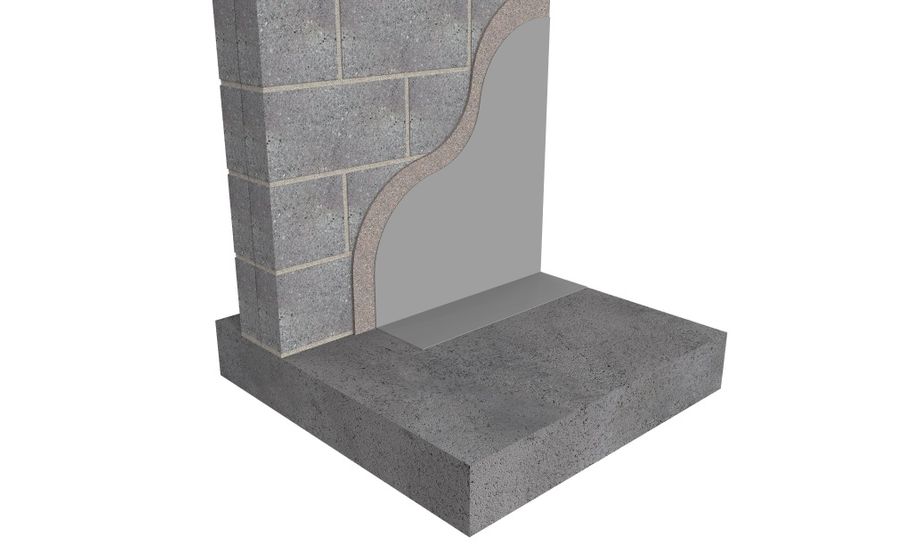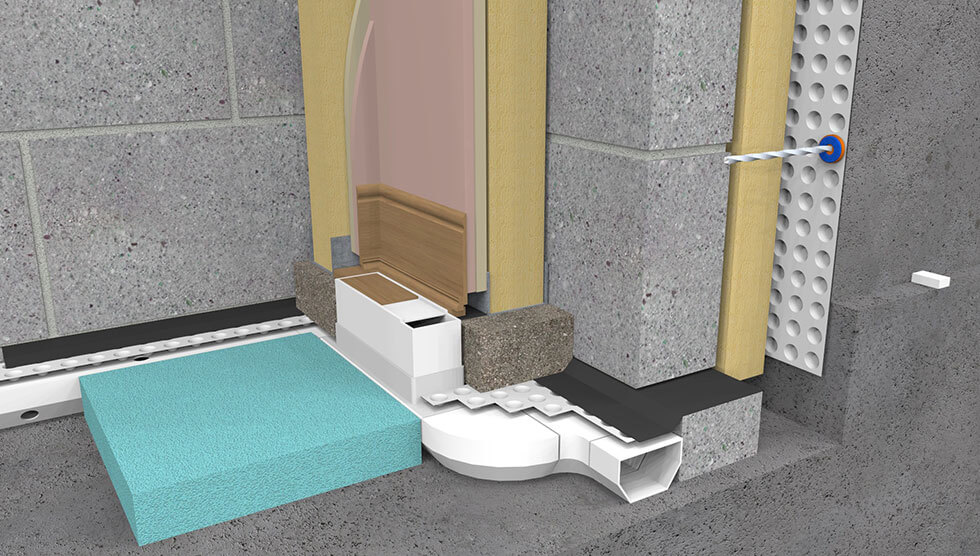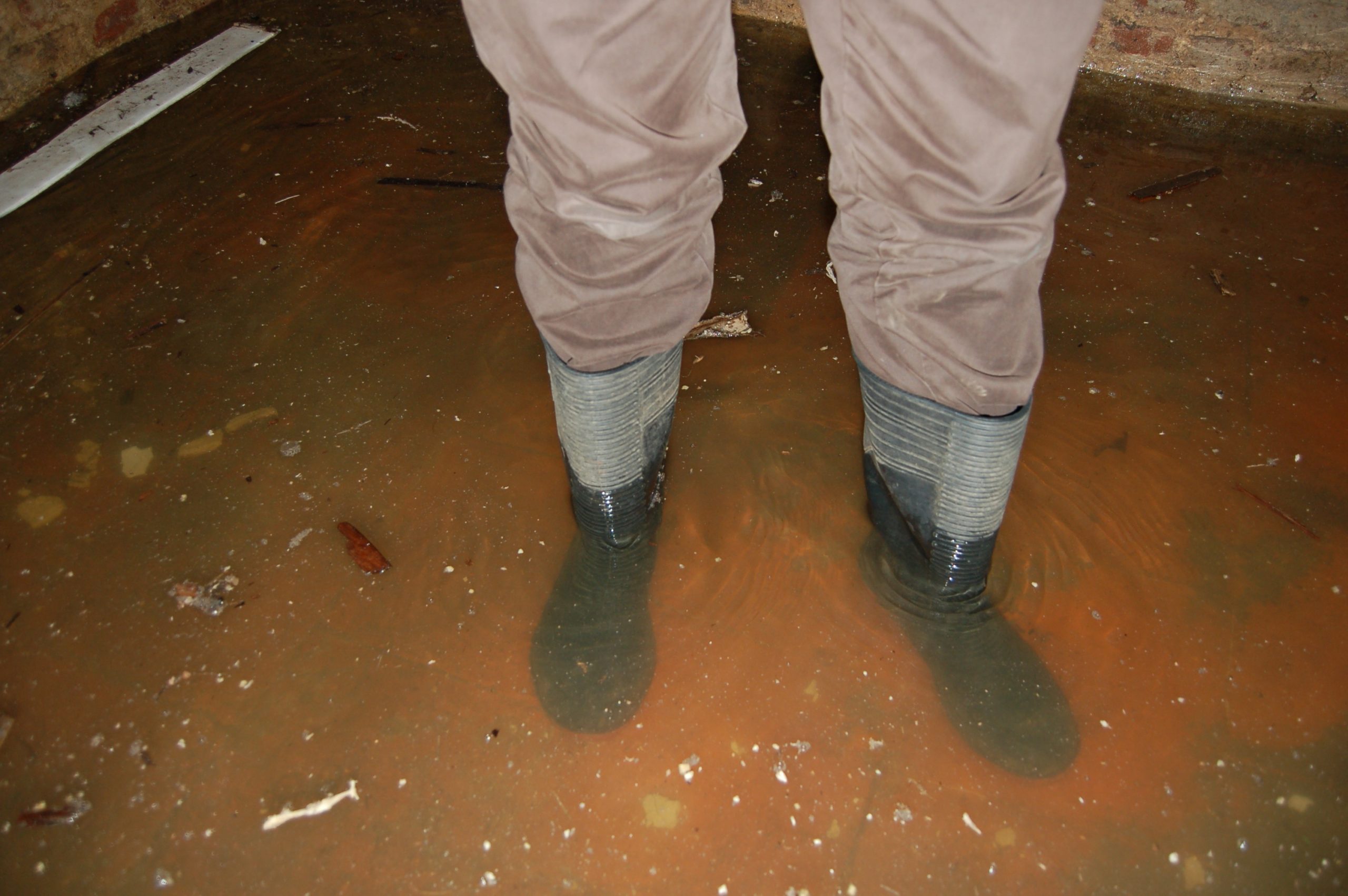01732 360 095
Ground water flooding is a potential danger that homeowners and business owners alike need to be aware of – after all, if affected by it, it could take months to repair.
The challenge is that ground water flooding presents some very specific problems, that usually require a specific solution to protect your home or property.
So how do you know if your home or business is at risk of ground water flooding? And what can you do to minimise these risks?
When Does Ground Water Flooding Happen?
Essentially, ground water flooding happens when levels of water in the rock and soil underground rise up towards the surface. Known as the water table, these levels can rise steadily over a period of time, and as they reach ground level, they come through to the surface, appearing in low-level rooms such as basements and cellars first.
As the water is coming through the ground rather than over the surface, in general, traditional flood prevention methods don’t work against ground water flooding.
There are several key features of flooding from ground water, including:
- Flooding will usually occur days or even weeks after heavy or prolonged rainfall.
- Flooding can continue for a long time, often lasting several weeks.
- Water may rise up through floors rather than coming in through doors and walls.
What To Watch Out For
Ground water can cause severe damage to a property, but there are a few early warning signs that can alert you to potential flood risks, including:
- Damp patches appearing in lower levels of the property.
- Water in the basement or cellar with no obvious source.
- Local sewers overflowing.
The code of practice that covers the protection of below-ground structures against water ingress, British Standard 8102:2022, states that a risk of flooding must be assumed for any basement or cellar. It’s therefore important to remember that even if there aren’t any signs of flooding at the moment, problems may still occur in the future.
How Can Ground Water Flooding Be Managed?
When it comes to managing ground water flooding and protecting a property, there are several different options available. However, the method that is best suited to a particular property will depend on a number of factors, so consulting a CSSW qualified surveyor is the best way to ensure that you get the most suitable solution.
At Newton Waterproofing, we are able to deliver the full suite of CSSW training courses in conjunction with the Property Care Association (PCA). As part of this, the training covers all three types of waterproofing in accordance with British Standard 8102:2022 – the Code of Practice for protection of below-ground structures against water ingress.
Type A – Barrier Waterproofing (Tanking)
Tanking is when a waterproof barrier is applied to the floors and walls of low-level rooms, creating a first line of defence between the property and ground water.
At Newton Waterproofing, we offer either the HydroCoat System for internal Type A waterproofing, and the HydroBond System for external Type A waterproofing.
When waterproofing existing structures to BS 8102:2022, there is often a requirement for a Type A membrane – our range of liquid-applied membranes, sheet membranes and associated ancillaries therefore offer a choice of third-party certified solutions, utilising advanced products that are quick and easy to apply.
Type C – Cavity Drain Waterproofing
One of the most popular solutions to ground water flooding is the Type C cavity drainage system. This involves a studded membrane being installed internally to the floor and walls to capture ingressing water, with drainage channels at the wall-floor junction leading to a sump and pump or existing drainage system. The result is a maintainable system that manages the water entering the basement by moving it away from the property.
The Newton CDM System is a comprehensive Type C waterproofing system that will usually be suggested as one of the forms of waterproofing where a completely dry internal environment is required.
A combination of our decades of basement waterproofing experience and our industry leading products, the Newton CDM System includes a range of BBA certified cavity drain membranes.
These membranes, coupled with the bespoke sump and pump configurations, backup systems, telemetry and ancillary options, makes it the most reliable and maintainable waterproofing solution for any habitable space below ground.
A Risk To Be Aware Of
Ground water flooding is a hidden but ever present danger in many parts of the UK, and putting preventative solutions in place is the best way to ensure properties are kept safe.
At Newton, we offer a completely integrated service, from initial consultations and design meetings, to site support and guaranteed installation by our professional installers.
Our expert technical team are all Certified Surveyors in Structural Waterproofing, with several of the team now qualified as Waterproofing Design Specialists, the highest waterproofing certification available in UK construction. We are therefore well versed in the design of waterproofing systems for any building and can provide meaningful support for your project. We can also put you in contact with a Newton Specialist Contractor who will be able to provide the highest quality products, design and installation on your project.
For help and advice on preventing against ground water flooding, contact us directly or email info@newtonwaterproofing.co.uk.
Read on to learn more:
Speak to our friendly, expert team
Our staff are able to provide guidance for projects of all sizes, whether you require some general advice about damp or waterproofing, or support with technical drawings and specifications.














